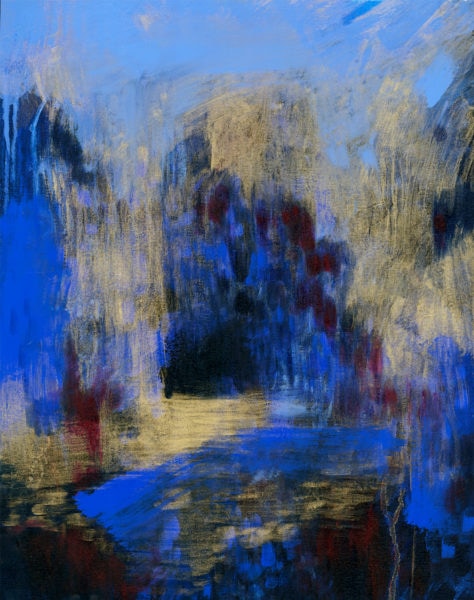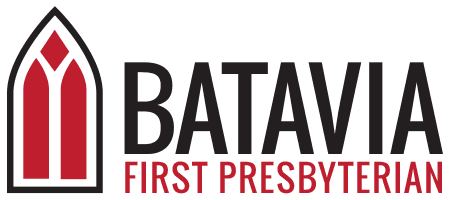
“Way to Wonder” by Lisle Gwynn Garrity| A Sanctified Art LLC | sanctifiedart.org
Weekly Bible Devotional
“Unraveled: Seeking Understanding When Everything Has Fallen Apart”
August 22, 2020
The problem of human suffering is an age-old issue that we confront. From the beginning of time, people have sought to understand and explain why we suffer, especially when our suffering seems to be innocent/undeserved. Why do children who are innocent get abused? Why do people who do good, get laid off from their jobs? Why do people die in natural disasters? And in the midst of suffering, how do we see and experience God? This issue more than any other issue in human history has been the leading cause for many people to lose their faith in God. I pray that the reflections from “A Sanctified Art” will help you find a way through the challenge of finding wisdom when life unravels.
Scripture for This Week: Job 28:12-28“But where shall wisdom be found?
And where is the place of understanding?
13 Mortals do not know the way to it,
and it is not found in the land of the living.
14 The deep says, ‘It is not in me,’
and the sea says, ‘It is not with me.’
15 It cannot be gotten for gold,
and silver cannot be weighed out as its price.
16 It cannot be valued in the gold of Ophir,
in precious onyx or sapphire.
17 Gold and glass cannot equal it,
nor can it be exchanged for jewels of fine gold.
18 No mention shall be made of coral or of crystal;
the price of wisdom is above pearls.
19 The chrysolite of Ethiopia cannot compare with it,
nor can it be valued in pure gold.
20 “Where then does wisdom come from?
And where is the place of understanding?
21 It is hidden from the eyes of all living,
and concealed from the birds of the air.
22 Abaddon and Death say,
‘We have heard a rumor of it with our ears.’
23 “God understands the way to it,
and he knows its place.
24 For he looks to the ends of the earth,
and sees everything under the heavens.
25 When he gave to the wind its weight,
and apportioned out the waters by measure;
26 when he made a decree for the rain,
and a way for the thunderbolt;
27 then he saw it and declared it;
he established it, and searched it out.
28 And he said to humankind,
‘Truly, the fear of the Lord, that is wisdom;
and to depart from evil is understanding.’”
Theme Connections:
Everything Job holds dear—his property, his family, his wealth, his physical health—has been taken from him. Reduced to suffering and misery, Job laments his circumstances and tries to make sense of what has happened to him. How do we also seek to make meaning of our pain? Ultimately, Job discerns that God is the source of all wisdom, and to turn away from evil is to turn toward the heart of the world, which God made good.
What Has Unraveled and/or Is Unraveling?
• Job’s life, in every way imaginable.• Job’s search for answers to explain his suffering.
• Biblically, the mainstream view (particularly within Deuteronomistic History) of God’s divine justice being for those who fear and serve God.
Guiding Questions:
• Some scholars consider chapter 28 a “hymn to wisdom” that may have been a later addition to the book of Job. How does this depiction of wisdom compare to other portrayals of wisdom in Proverbs and Ecclesiastes? How does Job ultimately define wisdom?
• Job insists on his righteousness and piety (Job 27:3-6; 29:12-20). How often do we too expect to be rewarded with happiness and prosperity for doing and being good?
• “Perhaps the ambiguity of Job’s final reply to Yahweh, and of the book as a whole, is deliberate: No easy answer exists to the problem of suffering, no formula that can adequately explain the justice of God.” ~Michael Coogan. What does it look like to embrace the mystery of God, even in the midst of suffering?
Quote for Inspiration:
“The prosperity gospel is a theodicy, an explanation for the problem of evil. It is an answer to the questions that take our lives apart: Why do some people get healed and some people don’t? Why do some people leap and land on their feet while others tumble all the way down? Why do some babies die in their cribs and some bitter souls live to see their great-grandchildren? The prosperity gospel looks at the world as it is and promises a solution. It guarantees that faith will always make a way. I would love to report that what I found in the prosperity gospel was something so foreign and terrible to me that I was warned away. But what I discovered was both familiar and painfully sweet: the
promise that I could curate my life, minimize my losses, and stand on my successes. And no matter how many times I rolled my eyes at the creed’s outrageous certainties, I craved them just the same. I had my own prosperity gospel, a flowering weed grown in with all the rest. Married in my twenties, a baby in my thirties, I won a job at my alma mater straight out of graduate school. I felt breathless with the possibilities. Actually, it’s getting harder to remember what it felt like, but I don’t think it was anything as simple as pride. It was certainty, plain and simple, that God had a worthy plan for my life in which every setback would also be a step forward. I wanted God to make me good and make me faithful, with just a few shining accolades along the way. Anything would do if hardships were only detours on my long life’s journey. I believed God would make a way. I don’t believe that anymore.”
—Kate Bowler. Everything Happens for a Reason: And Other Lies I’ve Loved. New York: Random House, 2018. xiii-xiv.
Read this interview with author and church historian, Kate Bowler, as she discusses what she’s learned
about making sense of suffering: “You’re Not That Special, And Other Lessons from Kate Bowler.” By
Catherine Woodiwiss. Published on Sojonet. May 9, 2018:
https://sojo.net/articles/youre-not-special-and-other-lessons-kate-bowler
From the artist // Lisle Gwynn Garrity:
Everything Job holds dear—his property, his family, his wealth, his physical health—has been taken from him. His life has unraveled in every way imaginable. How can we possibly make sense of the pain we endure, especially the pain we don’t cause or deserve? Much of Job’s journey requires him to untangle the punitive, quid pro quo theology he has absorbed. If I do good things, God will reward me. If I do bad things, God will punish me. On a cerebral level, I disagree with the logic of these words. But I remember how easily I can fall into the trap of feeling these words viscerally and bodily in moments of pain, especially in suffering that is so awful and unfair. When I first began this painting, I hoped to render Job’s hymn to wisdom visually. I imagined being stuck in the deep, as if my body was anchored underwater and I was looking up to the surface. I imagined textures and symbols emerging in the swirl of the dark to portray Job’s search for meaning, his grasping to find a way out. But as the painting came together, it was all wrong. The strokes and symbols were too literal, too formulaic. I almost scrapped the canvas altogether, but decided to keep going, to add more layers, more depth, more gold. A window, doorway, or portal emerged in the middle of the painting. I felt a release and realized that, while I started with lament, I ended with awe. “To fear God is wisdom” (Job 28:28). The Hebrew word for “fear,” yirah, literally translates to “awesome.” True wisdom lies in breathless reverence for God’s mystery and expansiveness—for God’s presence that is beyond what we can control, or reason, or make far too small.
Look:
Take a few moments to gaze upon the artwork. Breathe deeply in quiet meditation as you observe the visual qualities of what you see: color, line, texture, movement, shape, form.
Now take a deeper look. What parts of the image are your eyes most drawn to? What parts of the image did you overlook?
Now engage your imagination. If you were to place yourself in this scene, where would you be and how would you interact with what surrounds you?
Reflect:
– What has unraveled and/or is unraveling in this story?
– Job searches for an explanation for his suffering. How do you seek to make meaning of your own pain?
– Scholar Michael Coogan writes, “Perhaps the ambiguity of Job’s final reply to Yahweh, and of the book as a whole, is deliberate: No easy answer exists to the problem of suffering, no formula that can adequately explain the justice of God.” When have you embraced the mystery of God, even in the midst of suffering?
Write:
When have you been unraveled by unexpected joy and surprise? In the space below, reflect on this experience and what allowed you to receive that joy.
Pray:
When I need it most, unravel me with blessed newness and boundless joy. Amen.


